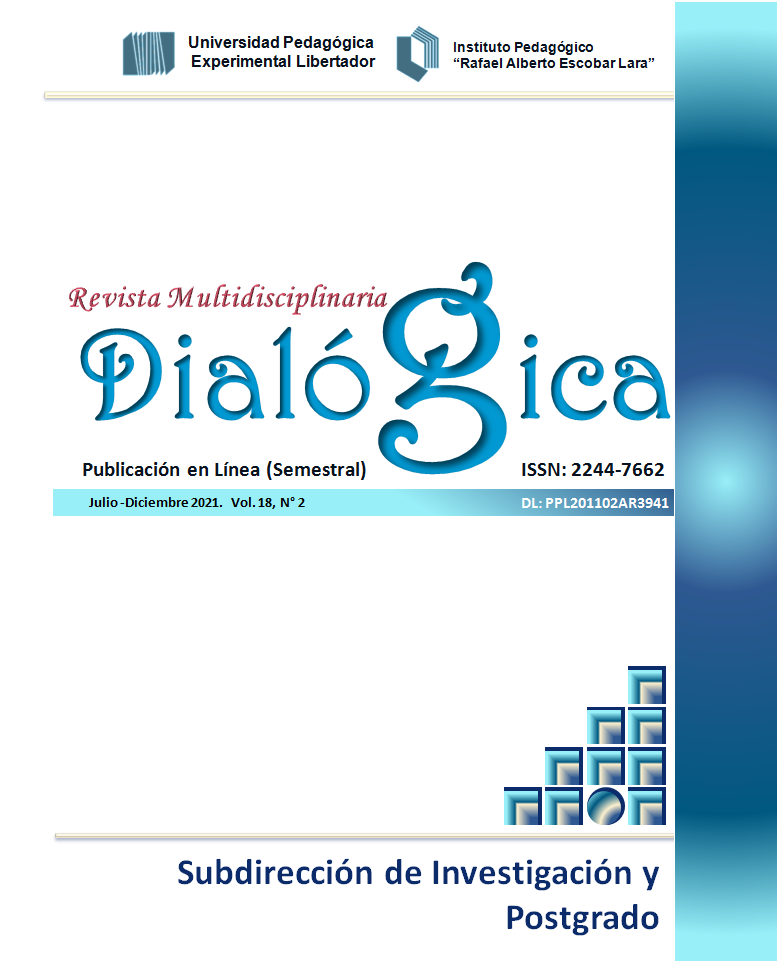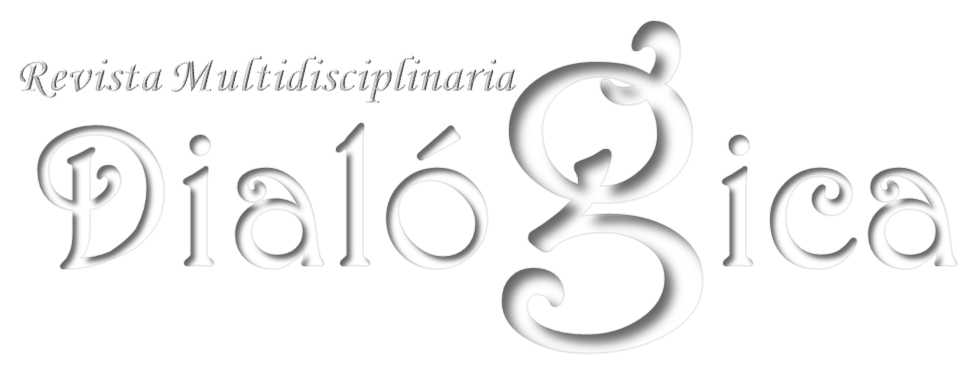CONSTRUCT FROM STRATEGIC RESEARCH TO GENERATE COMPETENCIES IN LIBERATING EDUCATION
DOI:
https://doi.org/10.56219/dialgica.v18i2.2003Keywords:
strategic research, managerial skills, liberating educationAbstract
The purpose of this scientific article was to construct, from strategic research, competences in liberating education through a profound quarrel, starting from the following question: What are the axiontoepistemological contents that will manage to concur around the construct in order to generate competences in liberating education? A review of the epistemic uses and theories of an expert, a university professor, was carried out, involving his unintelligible intellectual processes committed to the development of knowledge about subjectivity. Through the biographical method and the complex paradigm; participant observation; through the in-depth interview, interaction was achieved and the interpretation of the signifier was constructed.
References
Alvarez, J. (2003). Como hacer investigación cualitativa. Fundamentos y Metodología. Paidós.
Balza, A. (2011). Complejidad, transdisciplinariedad y transcomplejidad. Los caminos de la nueva ciencia. APUNESR. Fondo editorial gremial.
Balza, A. (2013). Pensar la investigación postdoctoral desde una perspectiva transcompleja. Nº 3. REDIT. Red de investigadores de la transcomplejidad. Venezuela
Briceño (2003). La cultura de la evaluación en la sociedad del conocimiento. Ediciones Universidad Simón Rodríguez.
Contreras. J. y Pérez, N. (2010). La experiencia y la investigación educativa. Morata.
Freire, P. (2004). La importancia de leer y el proceso de liberación (16a. ed.). Siglo XXI Editores.
Freire, P. (2010). Pedagogía de la indignación (3a. ed.). Ediciones Morata.
Hurtado León y otros. (2001). Paradigmas y métodos de investigación en tiempo de cambios (4a. ed.).
Leal, J. G. (2005). La autonomía del sujeto investigador (2a. ed.). Venezuela
Lolas, F. (2008). Bioética y Medicina. Universidad de Chile: Santiago.
Martínez, M. (2001). Necesidad de un nuevo paradigma epistémico en las ciencias sociales: Reflexiones de fin de siglo. Trópykos.
Morín, E (2003). El método. La humanidad de la humanidad. La identidad humana. Cátedra.
Morín, E. (1994). Introducción al pensamiento complejo. Gedisa.
Muñoz, C. y Biel, N. (2010). La quinta generación de evaluación. Graficas Tao.
Paz Sandin, M. (2003). Investigación cualitativa en educación fundamentos y tradiciones. McGraw
Pérez, G. (2000). Teoría y modelos pedagógicos. Fundación universitaria Luís Amigó.
Ricoeur, P. (2013b). La memoria, la historia, el olvido. Siglo XXI.
Robbins, E. (2007). Perfil gerencial. Cerined.
Rodríguez, G (1996). Metodología de la investigación cualitativa.
Rusque, A. M. (1999). De la diversidad a la unidad en la investigación cualitativa. Ediciones Fases y UCV.
Sierra, R. (1992). Técnicas de investigación social: Teoría y ejercicios.
Torre A (2000). Tres ideas en acción. Innovación-formación-investigación, recursos para la formación y el cambio.
Torres, Z. (2008). Perfil del director. Vival.
Valle, I. (2006). Desarrollo de competencias. http://mailXmail.com/.
Vera, H. (2008). Canales comunicacionales. Cerinet.


 @revistadialogica
@revistadialogica DialogicaUPEL
DialogicaUPEL RevistaDialogicaUPELMaracay
RevistaDialogicaUPELMaracay dialógicaupel@gmail.com
dialógicaupel@gmail.com dialogicaupel.blogspot.com
dialogicaupel.blogspot.com https://issuu.com/dialogicaupel
https://issuu.com/dialogicaupel https://revistas.upel.edu.ve/index.php/dialogica/
https://revistas.upel.edu.ve/index.php/dialogica/









